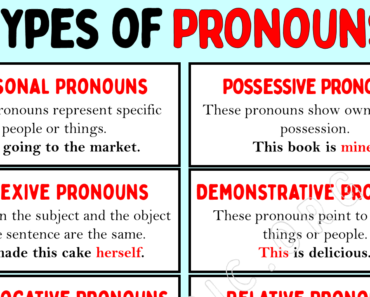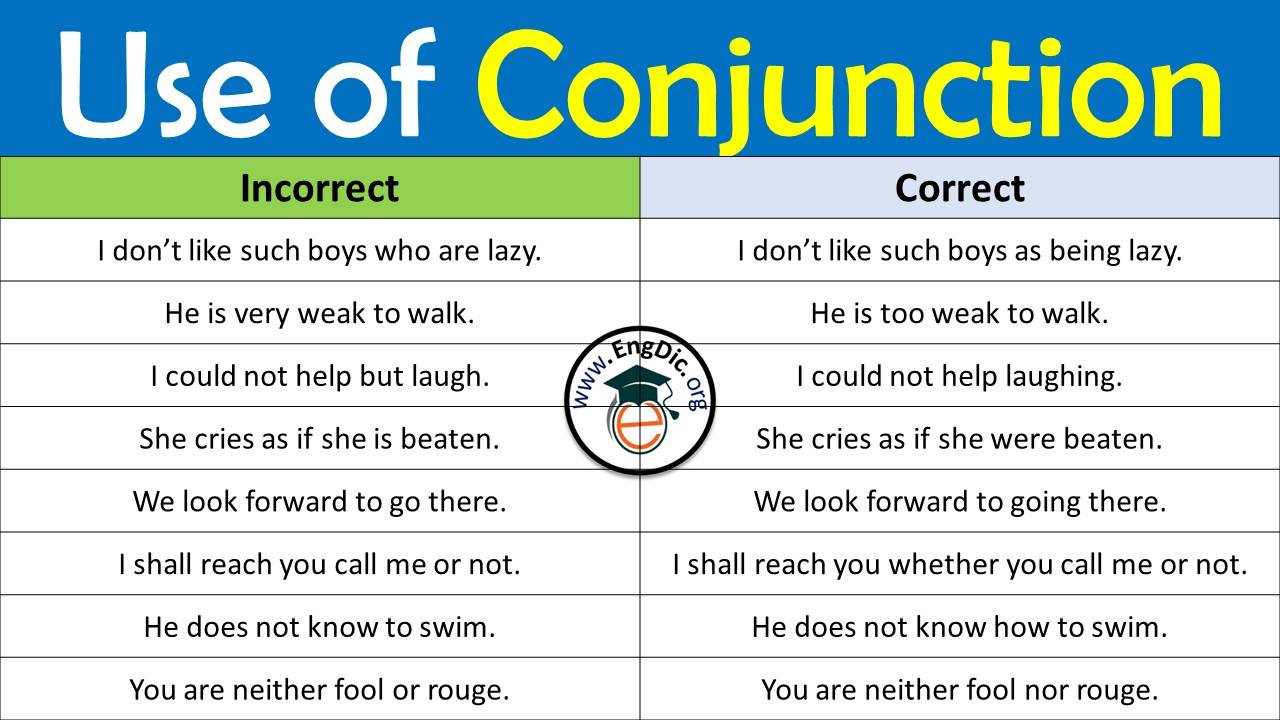Grammar rules of English related to pronoun are explained in this Article. After this article on the Grammar rules of English, you will be left with no confusion related to the pronoun.
This Post is Divided into three Parts.
- Rules Related Pronoun.
- Practice Example Corrections.
- A simple Quiz to test your Credibility.
What is a Pronoun?
A pronoun is a word that is used instead of a noun or noun phrase. It Usually Refers to someone that has already been mentioned or someone whose name is not specified.
i.e. (I, me, he, she, herself, you, it, that, they, each, few, many, who, whoever, whose, someone, everybody, etc.)
Different Types of Pronoun – Video Lesson
Grammar Rules of English
Rule no 1:
After ‘Let’ and ‘Between’ We always use the Dative form of Pronoun.
Example:
The Matter is Between he and I. (Incorrect)
The matter is between him and me. (Correct)
Rule no 2:
After ‘Than’, ‘As’ and ‘Be’ (is, am, are, was, were, been) always use the active form (Verbal Form) of Pronoun.
Examples:
He is taller than me. (Incorrect)
He is taller than I. (correct)
It is her. (Incorrect)
It is She. (correct)
In informal Style, Dative Form is Also Correct.
Examples:
It is me. (Correct àInformal)
He is taller than me. (Correct àInformal)
Rule No 3:
When a Relative pronoun ‘Who’ is used in a sentence, then do not use any other pronoun in the sentence.
He who wins the race, he will get a prize. (Incorrect)
He who wins the race will get a prize. (correct)
Note: Who, Whom, Whose, Which and That Are Relative Pronoun.
Rule No 4:
A Relative Clause Starting with a Relative Pronoun Always Comes after that noun about which it is explaining.
Example:
The Boy is my Friend who came Here. (incorrect)
Boy ⇒Noun
Who came here ⇒ Relative Clause
The boy who came here is my friend. (Correct)
Rule No 5:
‘Who’ is used for humans and big animals and ‘Which’ is used for small animals and nonliving things.
‘That’ is used for all.
Example:
I saw a bird who was chirping. (Incorrect)
I saw a bird which was chirping. (Correct)
Rule No 6:
The pronoun should be according to Verb.
Example:
The Farmer is Ploughing their Fields. (Incorrect)
The Farmer is Ploughing his Fields. (Correct)
Rule no 7:
If a sentence has these words at the start, then pronoun and verbs should be singular.
(Each, Every, Many a, None, Neither, Anyone, Either)
Example:
Each of these boys are doing their duty. (Incorrect)
Each of these boys is doing his duty. (Correct)
Rule no 8:
If a sentence has (Who, whom, whose, which) after ‘Such’ then change (Who, whom, whose, which) to ‘as’.
Example:
He is such a man who is liked by everyone. (Incorrect)
He is such a man as is liked by everyone. (Correct)
Rule no 9:
If a sentence has (Who, whom, whose, which) after ‘Same’ then change (Who, whom, whose, which) to ‘that’.
Example:
He is the same man whom I helped yesterday. (Incorrect)
He is the same man that I helped yesterday. (Correct)
Rule No 10:
For a good Piece of Work.
I⇒he⇒you
For Bad
You⇒he⇒I
I, he and you are enemies (Correct)
You, he and I are friends (Correct)
Rule no 11:
Before Gerund always use native from of Pronoun.
Example:
He dislikes me Going there. (Incorrect)
He dislikes my Going there. (Correct)
Grammar Rules of English – Infographics
Example Corrections
| Incorrect | Correct |
| This is yours book. | This is your book. |
| Your work is better than mine work. | Your work is better than my work. |
| This pen is my | This pen is mine. |
| One should do his duty. | One should do one’s duty. |
| A man should do one’s duty. | A man should do his duty. |
| He keeps himself away from smoking. | He keeps away from smoking. |
She was bathing herself in the pool. |
She was bating in the pool. |
| Wise people avail of every opportunity. | Wise people avail themselves of every opportunity. |
| He enjoyed in the class. | He enjoyed himself in the class. |
| Aslam and I are thieves. | I and Aslam are thieves. |
| I and Aslam are social worker | Aslam and I are social workers. |
| Ali is the boy which I like the best. | Ali is the boy whom I like the best. |
| I saw a bird who was pretty. | I saw a bird who was pretty. |
| She saw a rat who was running about in the room | She saw a rat who was running about in the room. |
| He is such a boy who is liked by me. | He is such a boy as is like by me. |
| John is the same boy who won the prize. | John is the same boy that won the prize. |
| He is the boy who I like. | He is the boy whom I like. |
| Whom is singing a song? | Who is singing a song? |
| The athlete which won the race is Pakistani. | The athlete who won the race is Pakistani. |
It is him. |
It is he. |
| Let we do it. | Let us do it. |
| Let’s she come in. | Let her come in. |
| The matter is between she and I. | The matter is between her and me. |
| None of the girl has done their work. | None of the girls has done her work. |
| Neither of the two boys is doing their duty. | Neither of the two boys is doing his duty. |
| Either of two boys is learning their lesson. | Either of the two boys is learning his lesson. |
| Anyone of these boys is reading their book. | Anyone of these boys is really reading his book. |
| Every boy is doing their duty. | Every boy is doing his duty. |
Each of them has paid their dues. |
Each of them has paid his dues. |
| The two girls are fighting with one another. | The two girls are fighting with each other. |
| The jury was divided in its verdicts. | The jury was divided in their verdicts. |
| Jury were united in their opinion. | The jury was united in its opinion. |
| I saw a girl in the school who was lovely. | In school, I saw a girl who was lovely. |
| She was wearing a ring on her finger which was made of gold. | She was wearing a ring which was made of gold on her finger. |
| The two boys are helping one another. | The two boys are helping each other. |
| One of the girl is wise. | One of the girls is wise. |
| Your’s truly. | Yours truly. |
| This pen is like me. | This pen is like my pen. |
| Those who work hard they will pass. | Those who work hard will pass. |








